The Kalona Sales Barn experience: Farmers, pie, cows, goats and gravy
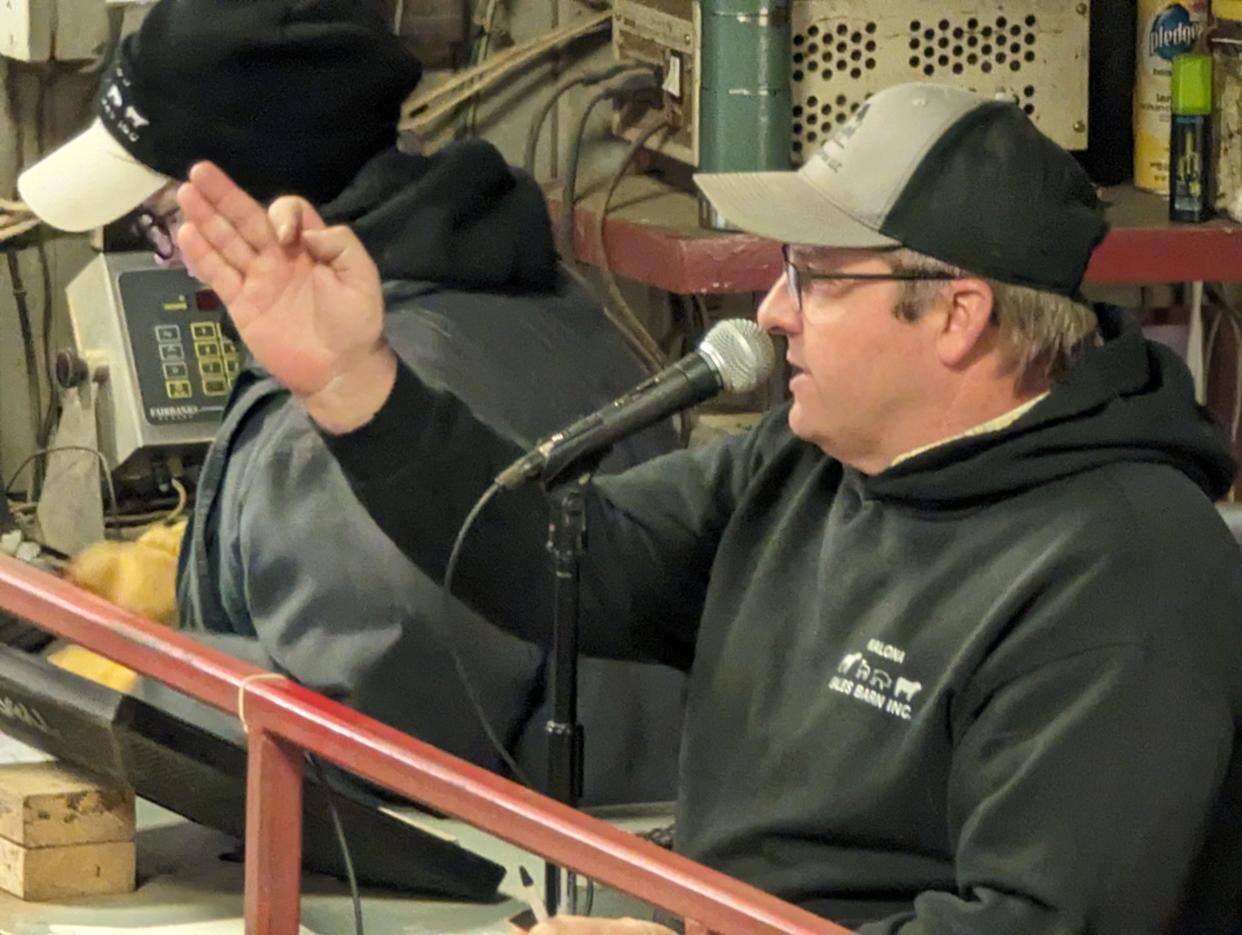
Even if you were raised an Iowa town kid like me, you have to love the farm-rich sights, sounds, tastes and smells of the small-town livestock auction house.
You’ll find the best of these at Kalona Sales Barn on auction days.
Here you can marvel at the animals herded into the auction arenas in small groups – cattle, horses, sheep, goats – waltzing to the drone of the auctioneer’s lightning-fast chant.
The crowd is diverse, ranging from local Amish farmers to packing plant buyers and other bidders from several surrounding states and beyond. At a recent horse sale, one buyer drove down from Alaska and trailered two new steeds all the way back north.
You’ll also find a few curious tourists with families enjoying a classic, gravy-smothered hot beef sandwich with raisin cream pie at the sale barn restaurant – comfort food dished up by congenial Mennonite servers. The restaurant is almost an historic institution of its own with its aged knotty-pine walls and old-fashioned horseshoe-shaped counter – limiting total seating to only about two dozen.
It’s a purely enthralling atmosphere for nostalgic visitors like me.
Kalona Sales Barn owner Devin Mullet sees it as more of a satisfying family business challenge he enjoys.
More: Hakes: Driving across U.S. in a 1924 Model T? Two local men are on 100th anniversary team
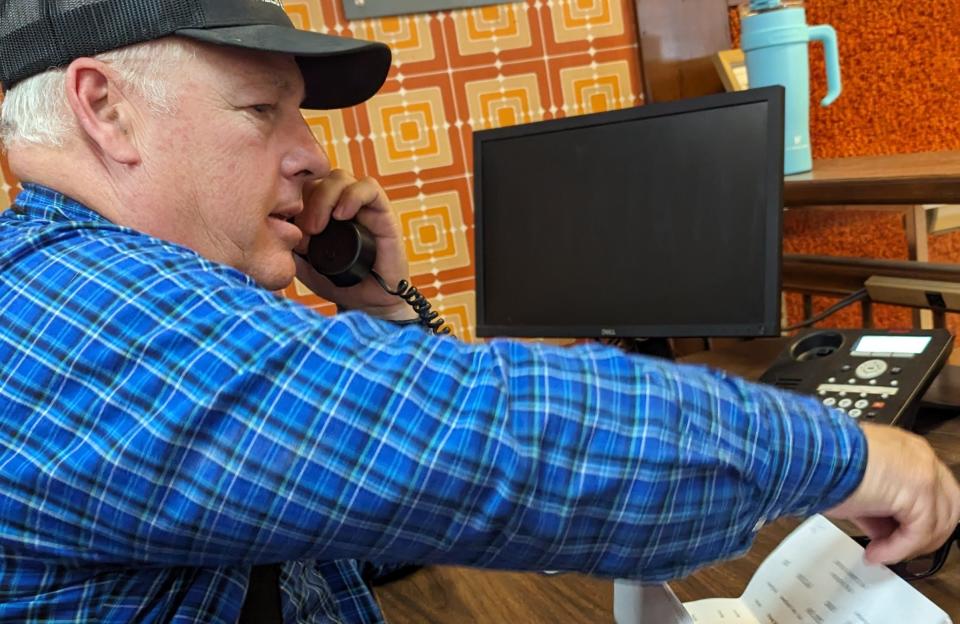
Thriving for eight decades
“We’re an old, established market,” Mullet said.
How has this place survived when dozens of Iowa sale barns have shuttered their doors over the years?
He offers two reasons:
“We are located in a good community with a lot of supportive customers,” he said, “and I think it helps that we are diversified and handle a lot of different animals.”
His grandfather, Simon Mullet, and Simon’s brother-in-law, Chester Miller, started the sale barn from scratch in 1947 and expanded it over the years with several additions. Devin cut his teeth in the biz as a kid cleaning out livestock stalls, and later took it over when his father, Dean, died in 1991.
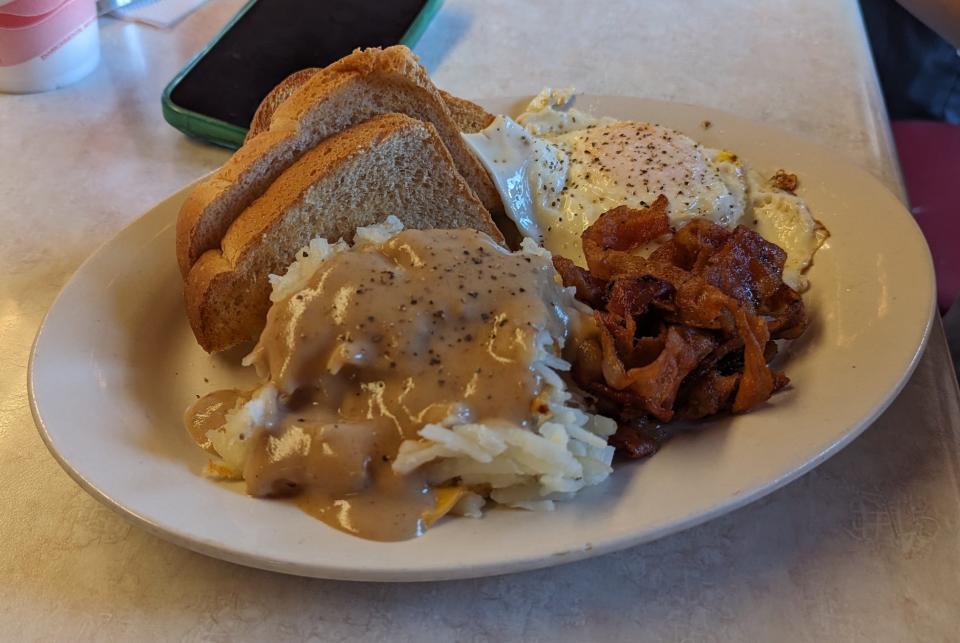
Today, Devin’s wife LaVaughn, two daughters and a son help him run things, the fourth generation in this family enterprise which has about 30 total employees on the payroll. A hands-on guy, Mullet often takes to the auction ring himself to help spot bidders for the auctioneer and make sure things run at a smooth pace.
The sprawling complex can now house up to 3,000 head of livestock under its roofs if needed in preparation for a sale. The cattle arena seats about 300 spectators and the adjacent larger horse arena 500. During auction days, the arenas are often filled to the brim with lookers and bidders.
Mullet says 300 horses might be sold at his typical horse sale and sometimes up to 3,000 head of sheep and goats. “There are a lot of Amish farmers milking goats in this area,” he adds.
The weekly cattle auction is very actively supported and often brings in 1,000 animals.
“Cattle’s our biggest business,” said the owner. “My dad and grandpa taught me about cattle, and I really enjoy visiting farms and talking to farmers about how to get the best price.”
More: 185 years & counting: Retiree’s new book reveals Iowa City’s amazing history – image after image
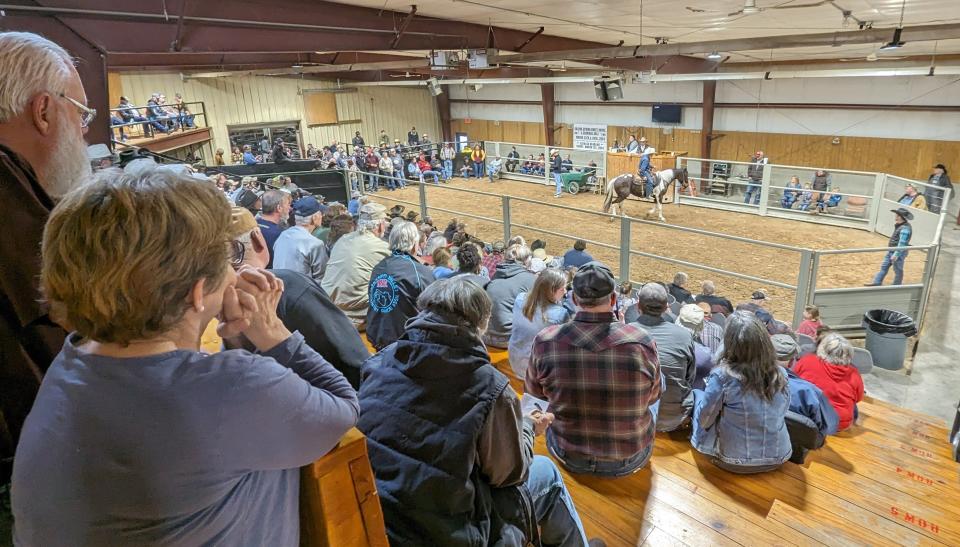
Great steaks for NYC
Mullet is openly proud of the small livestock farmers in Iowa, Illinois and Missouri who bring high-quality prime beef into his arena every week.
“We sell the best cattle in the U.S.,” he stated. “If you go to a high-end restaurant in New York City for a good steak, chances are it came through here.”
Because of its location in Amish country, the barn’s biggest horse sale in February of each year will often draw 800 horses of varying breeds. They include big draft horses for heavy work, plus the sleek Standardbred trotters for the lightweight buggies and carriages, often secured from harness-racing tracks around the country.
In all, the sale barn runs through more than 200,000 animals in a typical year, making it one of the most active livestock auction houses in the state.
Its 77-year history unfolds on the walls of the second-floor office, which are covered with pictures of workhorses, photo tributes to past auctioneers, and rusty old barn thermometers once given away as advertising promotions. A pair of stools was fashioned from antique tractor seats.
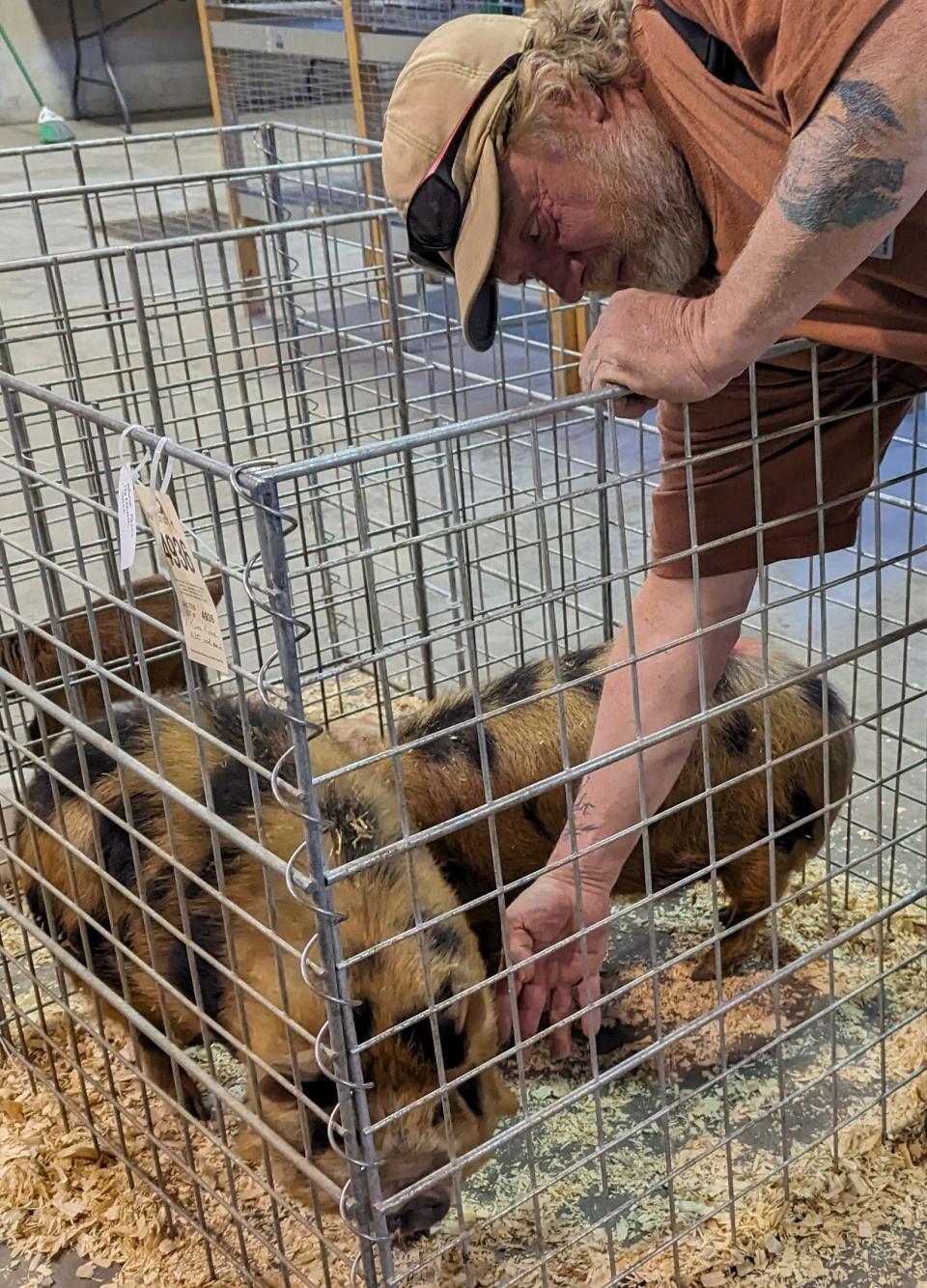
You’ll notice a large, framed wall tribute written by Karyn Carrillo which sums up the sale barn experience. Paraphrasing, it says:
“A sale barn is a place that holds cattle in its pens and endless conversation in the café…a place where the bellering of the cows and the sound of the auctioneer’s voice fills every inch of your body…where you feel the rush of every bid … where the intense environment and constant commotion keeps the spirit alive in us all….”
Our North Liberty retired-guy coffee group experienced this unique atmosphere not long ago, an entertaining lunch outing to revive the true affection most of us have for the farming experiences of our youth.
Nobody was disappointed.
If you want to experience this for yourself, the barn’s website at www.kalonasalesbarn.com lists upcoming sale dates. You’ll also find some entertaining videos of interesting action in the auction ring, including exotic horses and even some young children showing off their livestock skills.
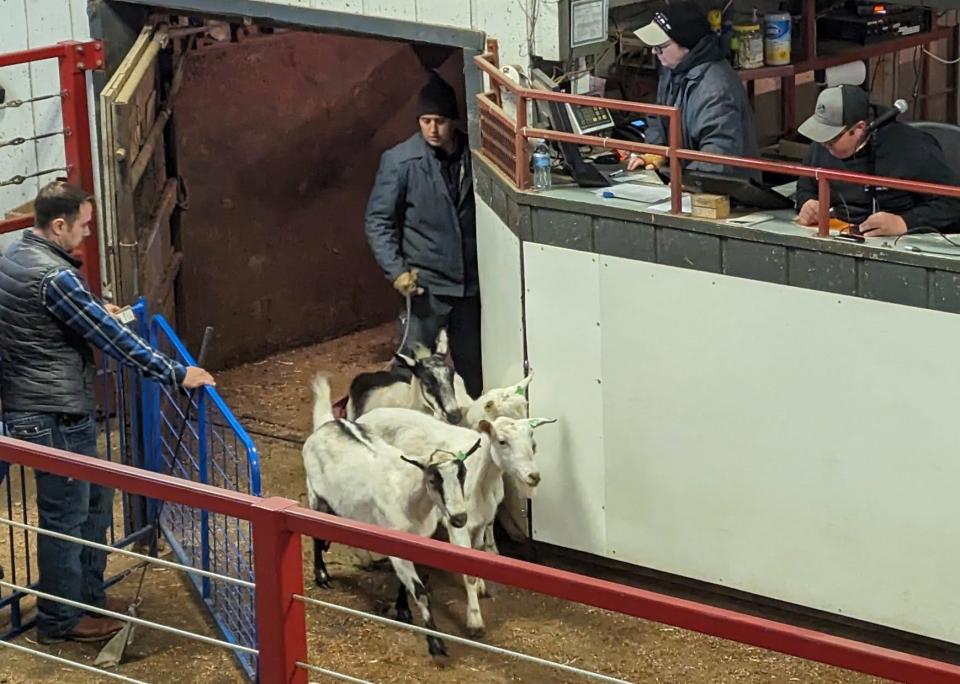
Richard Hakes is a freelance columnist for the Iowa City Press-Citizen.
This article originally appeared on Ames Tribune: Hakes: Kalona Sales Barn thriving eight decades in
Solve the daily Crossword

